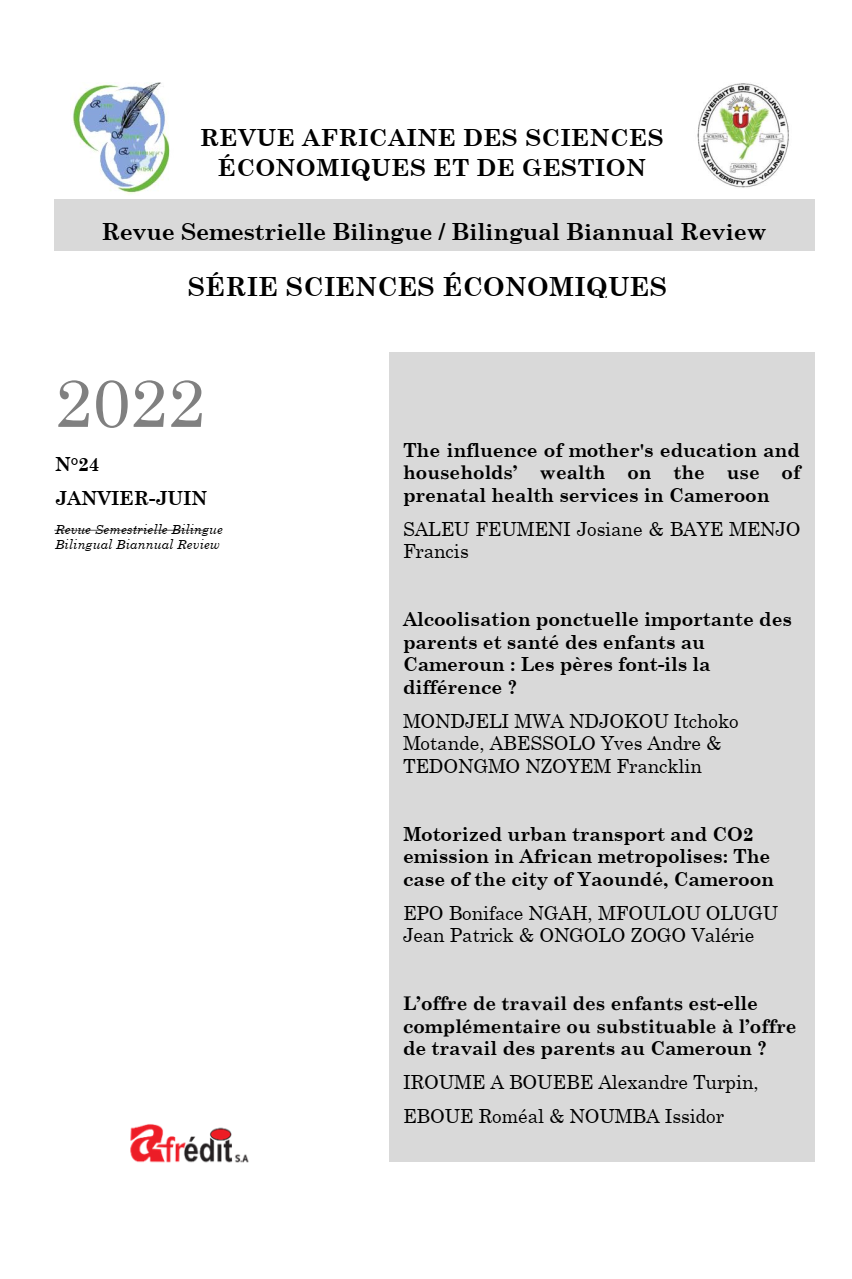
The influence of mother's education and households’ wealth on the use of prenatal health services in Cameroon
SALEU FEUMENI Josiane & BAYE MENJO Francis
Dans RASEG, La Revue 2023 (N° 24) , PAGES 7 – 50 Télécharger
Abstract: This paper investigates the role of mother’s education and wealth index on antenatal healthcare use - appealing to the 2004, 2011 and 2018 Cameroon Demographic and Health Surveys. Results show that maternal education at both individual and neighborhood levels increase the likelihood of participating in prenatal healthcare. Specifically, mothers with primary education are more inclined to choose nursing-aiders, while those with secondary level of education are more likely to choose a midwife or a doctor relative to their counterparts with no education. Socioeconomic status also significantly influences the mother's participation in antenatal care and the choice of an antenatal health professional. The households' standard of living does not allow the mother, regardless of her level of education, to use a doctor for her prenatal care. These findings suggest that public interventions that improve the education of the girl child, and access to health services and potable water would promote prenatal healthcare participation and choice of qualified healthcare providers among pregnant women. It would be important to really implement health policies offering financial support to pregnant women throughout the country.